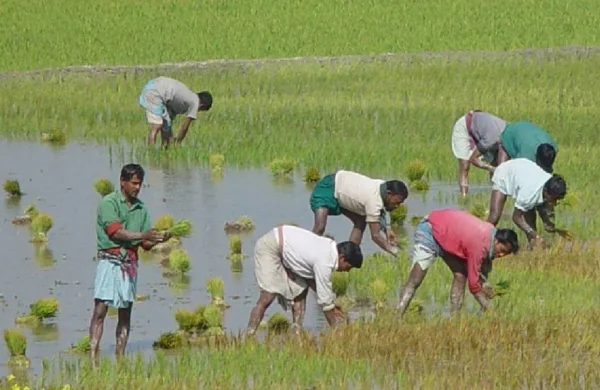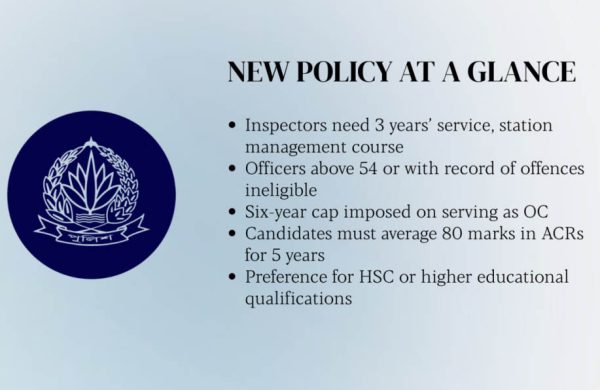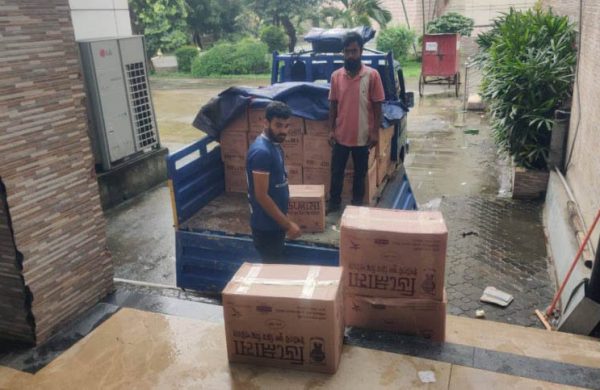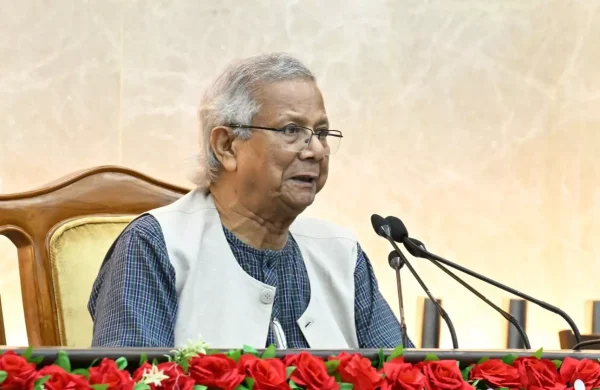Can Bangladesh reverse the decline in farming hands?
- Update Time : Monday, July 28, 2025

Staff Correspondent:
The number of active farmers in Bangladesh is rapidly declining, sparking concern among experts and policymakers over the country’s future food security, rural economy, and sustainable development.
Although Bangladesh is on course for Middle Income Country status by 2021, agriculture remains the largest employer in the country by far; and 47.5% of the population is directly employed in agriculture and around 70% depends on agriculture in one form or another for theirlivelihood.
Agriculture is the source of food for people through crops, livestock, fisheries; the source of raw materials for industry, of timber for construction; and a generator of foreign exchange for the country through the export of agricultural commodities, whether raw or processed. It is the motor of the development of the agro-industrial sector.
According to recent data from the Bangladesh Bureau of Statistics and other sources, the share of people employed in agriculture has dropped significantly—from 48.8% in 2010 to just 41% in 2022 among youth, and from 19% to 15.7% in the general workforce. Analysts attribute the shift to rural-to-urban migration, low profitability in farming, and the effects of climate change.
“This is a red alert for our food system,” said Dr. Mizanur Rahman, an agricultural economist at Dhaka University. “If young people continue to leave farming behind, who will produce our food in the next decade?”
The economic disparity between farming and other professions is a major driver of this exodus. On average, agricultural workers earn 30 to 40 percent less than those in the service or industrial sectors. Rising input costs—such as seeds, fertilisers, and irrigation—have made farming increasingly unprofitable, especially for smallholders.
Additionally, farmland is vanishing. Bangladesh has lost nearly 2% of its arable land in the past decade, mainly due to urbanisation, river erosion, and land conversion for infrastructure projects. Many farmer families, especially in flood-prone or coastal areas, are now landless and forced to work as laborers.
Climate change has added further pressure. Floods, salinity intrusion, and erratic weather have caused billions in crop losses annually. Agricultural experts warn that a 1°C increase in temperature could reduce rice yield by up to 7%.
“There’s no future in farming unless reforms are made,” said Mofiz Uddin, a 55-year-old farmer from Barisal who recently leased out his land to a brickfield. “My sons all left for Dhaka.”
The government has acknowledged the problem and introduced limited subsidies and mechanisation programs, but critics say they fall short. Only about half of all farmland is mechanised, compared to 80% in neighboring India. Moreover, just 2.6% of vocational training graduates are engaged in agriculture, highlighting a lack of youth interest and training.
Experts recommend urgent steps including price support for crops, investment in climate-resilient farming, and incentives for young entrepreneurs to enter agribusiness. Without these interventions, the country risks importing more food at higher costs and deepening rural poverty.
“Farming is not just a livelihood—it’s the backbone of our national identity,” said Dr. Rahman. “Losing our farmers means losing our food sovereignty.”
Following independence in 1971, agricultural production in Bangladesh increased at around the rate of 2% per year. The growth rate accelerated during the 1990s and early 2000s to around 4% per year. The Sixth Five Year Plan sought to build on the success of such rapid
agricultural growth, targeting average growth of 4.5 % during the plan period (6th FYP Mid-Term Report, 2014), and a remarkable 5.1% growth was achieved in 2010-11. However, this momentum could not be sustained subsequently and the growth rate fell sharply in 2011-12 to
2.7%, and weakened further to only 2.2% in 2012-13. Since then it has remained around that level.
However it has been estimated that for achieving the Millennium Development Goals (MDGs) and post-MDGs, and for turning Bangladesh into a middle income country, agriculture should grow at a constant rate of 4-4.5% per year.
In Bangladesh, 85% of farmers are smallholders-braving unpredictable rains, rising temperatures, and shrinking margins. They don’t just grow crops; they hold the frontline of climate resilience, food safety, and sustainability.
Md. Shah Jamal Chowdhury, Lead auditor at GAP Wing of Department of Agriculture Extension, shared his experience on this issue.
“We speak of Good Agricultural Practices (GAP)-yet without simplification, support, and market linkage, it remains a policy dream, not a farming reality. We advocate climate-smart agriculture-but where is the climate finance that reaches the hands that till the land?” he said.
“We design frameworks and protocols-yet most farmers still lack access to training, resources, and the dignity of fair prices,” he also said.
He said that he had had the privilege of working with thousands of smallholder farmers on GAP implementation and certification, adapting practices to their realities.
“The truth is clear: if we don’t invest in our farmers today, tomorrow’s food security is a myth. It’s time to act: Channel climate funds directly to smallholders. Make GAP practical, localized, and affordable,” he said.
He also asked all concerned to ensure that farmers are at the center of every sustainability policy-not just as beneficiaries, but as partners in resilience.
“Let’s not wait for an empty plate to remind us what we lost. We need to support farmers to secure food as well as sustain our future,” he added.
Chairman and CEO of Harvesting Knowledge Consultancy Mukkan Dutta said, “Farmers are not just food producers-they are climate defenders and guardians of our future. Unless policies translate into practical support and fair markets for smallholders, food security will remain an illusion.”
“We must center farmers in every climate and food policy, not tomorrow, but today,” he emphasized.
The Ministry of Agriculture (MoA), in collaboration with the Food and Agriculture Organization of the United Nations (FAO) and with financial support from the Gates Foundation, officially launched the “Technical Support to Sustainable and Resilient Investment Towards Agriculture Sector Transformation Programme (AsTP)” on July 23.
The AsTP project marks a major milestone in Bangladesh’s journey to modernize its agriculture sector and enhance sustainability, resilience, and productivity in the face of growing global and local challenges.
Dr. Emdad Ullah Mian, Secretary of MoA, talked about Bangladesh’s priorities for its agricultural transformation in his remarks. He stated, “The AsTP project comes at a crucial time as Bangladesh redefines its agricultural priorities ahead of LDC graduation. It will help us align national policy with evidence, invest strategically, and empower institutions to deliver.”


















